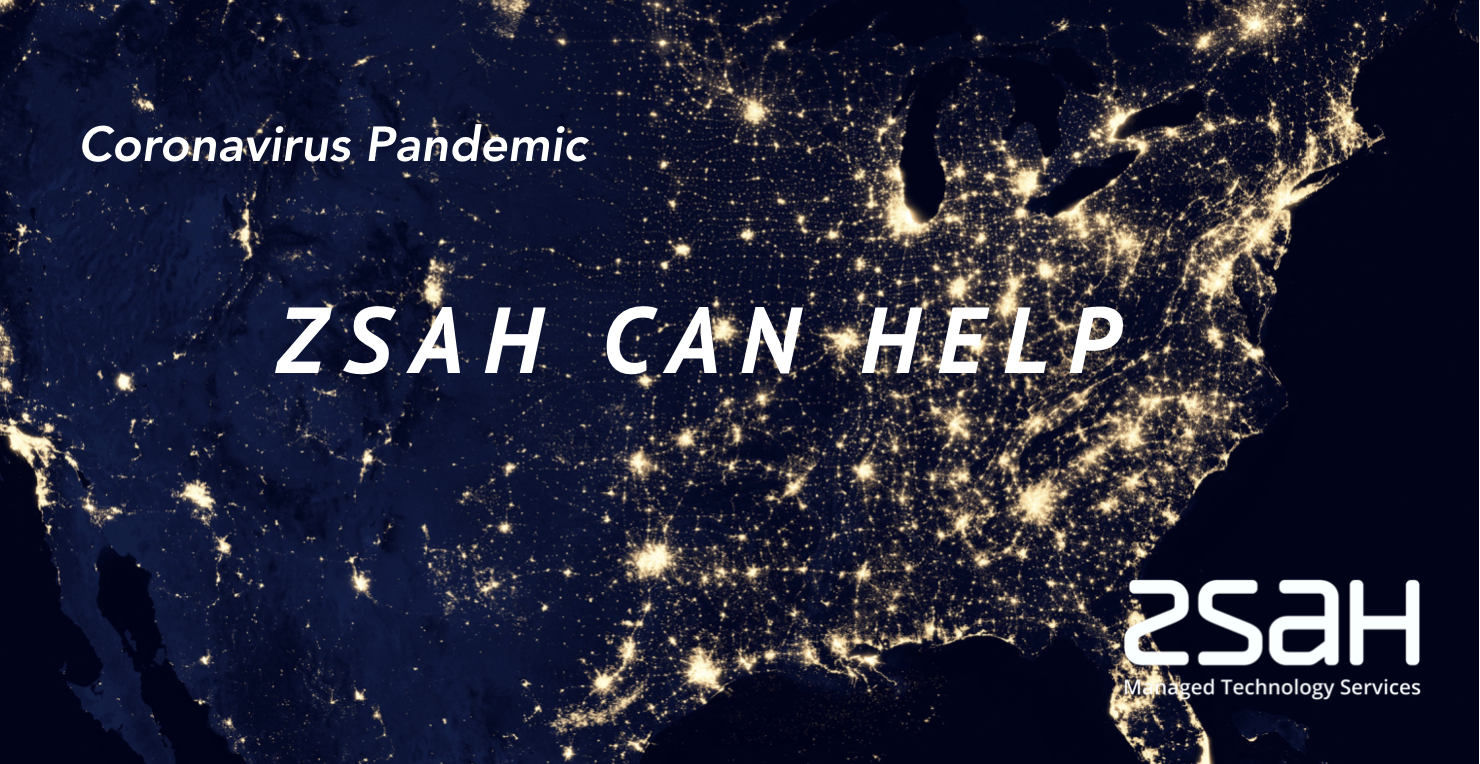4 Ways Technology Is Helping to Fight the Coronavirus

As governments, scientists, and medical professionals around the world struggle to cope with the ongoing pandemic, technology is playing a central role in humanity’s fight against the 2019 novel coronavirus, or COVID-19.
Technology firms and individuals working in the sector are joining efforts to assist in various ways, including developing products to combat COVID-19, tracking and predicting the spread of infection, embarking on innovative projects to deliver medical and palliative care, and protecting hospitals from cyber attacks.
In this article, we’ll be looking at some of the activity that’s underway, as technology fights the coronavirus alongside the world’s citizens.
Ways Technology Firms and Developers Fight the Coronavirus
Software has a big role to play in COVID-19 management – whether it’s contact tracing apps to help governments and health authorities keep track of coronavirus patients, or sophisticated data handling and modelling applications for the design of therapeutic interventions and vaccines. Undoubtedly, an increasing number of firms are implementing technology to fight against the coronavirus.
Connect organisations in need of development help
Developers from the Codementor and Arc communities are offering their knowledge in technology to help with projects designed to fight the coronavirus pandemic. The scheme dubbed "Code Against COVID-19" aims to connect organisations in need of development help for their projects with developers from across the globe.
According to Arc, of the over 500,000 developers in Codementor and Arc, more than 200 volunteers have so far signed up for the effort and are working on more than 20 different projects. A live list of developers willing to work on COVID-19 projects is available online.
Voluntary web and software development services offering
Along similar lines, the Coding Dojo “Tech for America” project has the technology education firm mobilising a network of more than 4,500 alumni to offer web and software development services on a volunteer basis.
The scheme, which started in early April, currently has 190 volunteers from 30 states in the US, and 11 countries. Organisations that send a request for assistance to the project email address are matched with volunteers in their area, based on locality, the level of technological proficiency needed for a given project, and other factors.
Tools for COVID-19 data queries
To assist developers working on coronavirus projects, Verizon Media (the owners of Yahoo!) are offering new tools for COVID-19 data queries, which will enable programmers and data management teams to better organise and understand publicly available information on the coronavirus pandemic.
The resources on offer are powered by the Yahoo Knowledge Graph, and include a data set, application programming interface (API), and dashboard to help engineers analyse and navigate COVID-19 data. The dashboard enables project teams to create informative and interactive visualisations of the information available about the novel coronavirus.
The Yahoo Knowledge COVID-19 data set includes information gathered from government websites and health care organisations such as the WHO, all of which is accessible under a Creative Commons license.
The data provides worldwide locations for coronavirus incidents, cases, deaths, and recoveries, all broken down by country, state, and county level. Using the project’s API, developers can explore the data set and build their own coronavirus charts, simulations, and applications.
COVID-19 Data Hub
Tableau Software has pulled together data from the likes of Johns Hopkins University, the US Centres for Disease Control and Prevention (CDC), and the World Health Organisation (WHO), to create a COVID-19 Data Hub. This resource enables researchers and developers to vet a variety of high-quality data sources related to the ongoing coronavirus outbreak. Tools on offer include dashboard templates and features that allow users to build their own visualisations.
A spokesperson for Tableau suggests that a number of laboratory pharmaceutical companies are using much of this data to help them decide on where to distribute coronavirus testing kits. Here at zsah, we’re also working closely with Tableau in the development of potential COVID-19 applications that utilize data analytics for things like social distance monitoring.
Coronavirus spreading tracking
Instagram founders Kevin Systrom and Mike Krieger have recently launched a website called Rt.live. Using continuously updated information from the COVID Tracking Project, the website enables administrators to determine how quickly the coronavirus is spreading state by state in the US.
An "Rt" value for the virus of 1.0 or more indicates that COVID-19 is spreading at an increasing rate in a given state, while numbers below 1.0 indicate that the spread is slowing down.
Coronavirus activity forecasting
Carnegie Mellon University in the US has been working with Facebook and Google, to collect and evaluate data about COVID-19-related symptoms experienced and reported by users of the social media platform and search engine. Combined with data such as medical insurance claims and testing results, responses to the survey should allow Carnegie Mellon University to highlight COVID-19 activity more accurately than having to rely on positive coronavirus tests alone.
The university hopes to use this information to get a county-by-county breakdown of data from across the United States, which will ultimately enable researchers to accurately forecast coronavirus activity several weeks ahead of time.
Clinically-authored symptom checker
In response to the pandemic, UK health tech provider EMIS Health has created a new coronavirus hub and a clinically-authored symptom checker, as additional features to its free Patient Access app. The hub directs users to trusted information, plus online services such as appointment booking, GP video consultations, and managing repeat medication, and is helping to relieve pressure on primary care services.
The company has recently partnered with the Nuffield Department of Primary Care at the University of Oxford and the Royal College of General Practitioners (RCGP), to support a major new research initiative into COVID-19.
Deliver a "single source of truth"
The UK National Health Service (NHS) is teaming up with leading technology firms to help make critical medical equipment available to its facilities most in need during the coronavirus outbreak. Drawing on records gathered from NHS emergency services calls and COVID-19 test results, Microsoft has built a data store on its Azure cloud computing platform to hold the information in a single, secure location.
Palantir is making its Foundry software tool available, to analyse records and deliver a "single source of truth". Amazon Web Services (AWS) will provide additional cloud computing facilities. London-based Faculty AI is developing dashboards, models, and simulations to assist decision makers. And Google's G Suite productivity apps are being used to collect and aggregate real-time operational data.
There are many ways that technology can help fight against the coronavirus. All the information and coding resources in the world won’t help, however, if organisations are unable to remain functional during COVID-19 lockdowns and movement restrictions.
In recognition of this, UK technology and cloud services provider zsah is offering free hosting for three months, to help businesses stay up and running during the coronavirus pandemic.
Artificial Intelligence Technology in the Fight Against Coronavirus

Artificial Intelligence technology has three principal applications in fighting the current coronavirus pandemic: processing large amounts of data to find treatments, reducing the spread of COVID-19, and treating ill patients. Below are some examples showing how AI technology is helping us fight the coronavirus.
Identify the spread of COVID-19
It was in late December 2019 that AI software deployed by the Canadian health surveillance startup BlueDot discovered a cluster of unusual pneumonia cases in Wuhan, China, and was among the first applications in the world to accurately identify the spread of COVID-19 and its associated risks. The AI technology software is also making predictions as to where the virus might go next to fight against the coronavirus.
Understand the transmission of the virus
In the UK, Oxford Nanopore has been using sequencing technologies to assist scientists in understanding the transmission of the virus and whether or not it is changing, as well as the effect of other pathogens that may be present.
Analyse tens of thousands of scientific research papers
In the search for potential treatments, the COVID-19 Open Research Dataset (CORD-19) uses natural language processing (NLP) to analyse tens of thousands of scientific research papers at a pace vastly greater than any previous initiative. Building on the Seattle Allen Institute for Artificial Intelligence (AI2) Semantic Scholar project, the scheme operates on the theory that the cures for many ills lie buried in the scientific literature.
Map out 3D atomic-scale models
Working on the knowledge that the coronavirus invades cells through “spike proteins” that take on different shapes with different variants of the virus, the University of Washington’s Institute for Protein Design has been using Artificial Intelligence to map out 3D atomic-scale models of the SARS-CoV-2 spike protein that mirror those first discovered in a University of Texas Austin lab. The research team is now working to create new proteins to neutralise the coronavirus.
According to The Guardian, doctors in the US used an AI-powered robot to treat the first person diagnosed with COVID-19 in Everett, Washington. The robot was equipped with a stethoscope to take the patient’s vitals, and a camera for doctors to communicate with the patient through a large video screen. Elsewhere, AI systems are helping doctors to identify COVID-19 cases through CT scans or x-rays, at a rapid rate, and with high accuracy.
Support front line medical workers
UK GP/patient communication startup accuRx built a video consultation product over the course of a single weekend to assist medical professionals in dealing with suspected and confirmed coronavirus cases. This technology company has also released a range of other features to support front line medical workers to fight the coronavirus.
Online chatbot diagnosis service
UK-based health service provider Babylon has also developed a COVID-19 Care Assistant, a free online chatbot diagnosis service that helps people to identify if they’re at risk, connect with an expert clinician, and monitor their health – all without leaving home.
In the bid to keep front line workers safe from infection, “Robots have the potential to be deployed for disinfection, delivering medications and food, measuring vital signs, and assisting border controls,” according to a study published in Science Robotics.
Researchers and robotics experts at Edinburgh’s Heriot-Watt University are working on what they claim will be the first health care robot capable of holding a conversation with more than one individual at the same time.
Drone to Door Delivery of Prescriptions
There’s been a lot of hype in recent years about the use of drones or unmanned aerial vehicles (UAVs) for package delivery - but not a great deal of actual substance. However, a case covered recently by the BBC highlights one instance of where this technology is proving to be of practical value in the fight against the coronavirus.
(Image source: BBC.com)
Deliver medicines and other essential supplies
Manna Aero, a company that deploys autonomous drones manufactured in Wales, is working with the Health Service Executive of Ireland to deliver medicines and other essential supplies to vulnerable people in the small rural town of Moneygall.
Initially part of a fast-food delivery project that was abandoned at the start of the pandemic, the company’s UAVs now fly straight to coronavirus patients’ homes, as the final stage of a "closed-loop" end-to-end system.
After a video consultation, local GPs write prescriptions which the drones then drop off at patients' homes. The UAVs can also deliver essential supplies such as milk or bread to patients who are under quarantine, and unable to leave the house.
Alleviating Hunger, Food Scarcity, And Social Isolation
Quarantine and lockdown restrictions in response to coronavirus outbreaks are imposing difficulties on many of the world’s citizens. With supermarkets closed or on reduced hours, and transport systems shutting down, people are facing challenges in buying basic foodstuffs and amenities. The problems are being exacerbated through job losses and the slowing down of regional economies. Here's how technology can help fight the coronavirus in light of social distancing.
Open-source interactive map of free meal sites
In the US, 10x Management, a freelance developer hiring agency, has partnered with software engineers Greg Sadetsky and Colin Wren and the non-profit organisation WhyHunger, to develop a comprehensive, crowd-sourced, and open-source interactive map of free meal sites. The map is updated daily.
Mental health support and social care
Across the globe, many people are experiencing emotional difficulties and a sense of disconnection, due to the effects of COVID-19 lockdown and quarantine restrictions. Techforce 19, part of the UK’s NHSX health technology initiative, is a £500,000 funding reserve for technology innovators looking to find new ways of fighting the effects of social distancing during the coronavirus pandemic, with a specific focus on mental health support and social care.
Funding of as much as £25,000 will be awarded to successful applicants who can demonstrate viable digital solutions to the problems created by social isolation.
How Zsah Can Help
As technology fights the coronavirus in tandem with governments, scientists, and health care professionals, initiatives like these will be instrumental in helping societies effectively deal with the outbreak.
At zsah, we’re here to help your business stay running during the coronavirus pandemic.

Free hosting and discounted consultancy
We’re offering free 3-month hosting and discounted consulting services for those who need help implementing work-from-home, cloud management or cybersecurity strategies to alleviate the economic impact of the pandemic on your business in these unprecedented times.
Free secure video conferencing solution
We also understand that one of the greatest challenges companies are facing during these difficult times is remote communication between staff and with clients. And with questions over the privacy and security of video conf suppliers, companies are struggling to find cost-effective alternatives. Therefore, zsah is offering a low-cost, highly secure video conferencing solution to help you communicate with your staff and customers.
We’re here to help. Please do not hesitate to get in touch to initiate these discussions with our customer advisors.
Now It’s Your Turn!
From tangible to intangible, technology is helping us fight the ongoing coronavirus pandemic in many different ways. Now we want to learn from you:
How have you seen technology used to fight the coronavirus?
Leave a comment below right now and let us know, we would love to hear from you.




